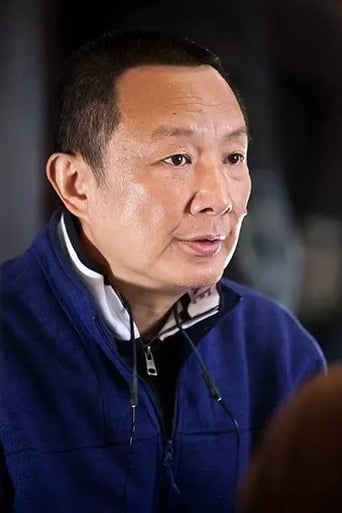Geraldine
The story, direction, characters, and writing/dialogue is akin to taking a tranquilizer shot to the neck, but everything else was so well done.
daneelspatrick
The movie I have is a Russian movie by Star Media. Language,: Russian Subs in EnglishThough they have the same title, they are different. The Russian movie is also quite new, but not at all ChinesePatrick Daneels
Chris Knipp
In the story, which is pursued with quiet obsessiveness, a youth, Leilei (Zhang Li), becomes possessed by his late mother, Xiuying, whose spirit has wandered the Shanxi Province's disintegrating cave homes for years. With the help of Leilei's father Ming Chun (Zhang Mingjun), whose reception of his late wife's return is deadpan (Buster Keaton has nothing on these two guys), they undertake the Sisyphean process, to please Xiuying, of moving a tree from her family's courtyard higher up in the desolate dust-covered mountains that surround them. Panoramic shots show a valley spanned by modern mining apparatus, while up close beyond the man and possessed boy plod around a depressing, desolate village where nobody is friendly, not even their relatives.The film was reviewed at the Berlinale by Clarence Tsui in Hollywood Reporter. It was produced by Jia Zhang-ke, whose deadpan sarcasm Tsui detects in this film; she also sees links with Kafka, Camus, and the camera style of Pedro Costa. The festival blurb sees a link with "the gentle supernaturalism of Apichatpong Weerasethakul." Actually, this is a very Chinese film, and is suffused with the spirit and style of Jia. The sad, fatalistic mood of Life After Life made me think of Arthur Waley's translation of the old Chinese poem The Chrysanthemums in the Eastern Garden: "With what thoughts of sadness and loneliness/I walk again in this cold, deserted place!/In the midst of the garden long I stand alone;/The sunshine, faint; the wind and dew chill/The autumn lettuce is tangled and turned to seed;/The fair trees are blighted and withered away." And so on. But in Zhang Hanyi's film, nothing blooms. It is probable that Zhang means the moving of the leafless tree as a gesture toward the destroyed earth of modern China. There aren't any closeups other than the staring face of Leilei/Xiuying facing backward as they forge ahead on his father's curious vehicle, in which a small pickup truck appears to have mated with a motorcycle. The task of getting the tree into this contraption is truly Sisyphean: following a method they've seen applied to a very large rock, they work the tree onto the truck along a long plank. Leilei pulls a rope lassoed around the bulky bottom of the tree wherein its roots are wrapped, while his dad, holding its thin trunk, rocks it side to side. Up a plank they go, but just before entering the truck, it falls down, do they must work it all the way back to the beginning of the plank, to start anew. People encountered in the village are sullen and unattractive. Xiuying's family are not welcoming, but don't expel the pair from a grim outdoor meal.Looking for Xiuying's father's spirit, they believe they've found it in an unruly, highly sexed dog. The New Directors series of which this was a part has included more than its share of animals slaughtered on screen. This one can boast the most morbid and prolonged animal execution, which we're forced to watch all of. It involves strangling a sheep held to the ground. It takes an age for the sheep to die. When the task is done, as promised Xiuying leaves, and Leili's body goes limp. We see Ming Chun carrying it on his back -- another Sisyphean task? -- and calling to Leilei's spirit to return. But it does not return. While we are making sophisticated western references, we might mention Beckett. The meaning of the film's title in Chinese is "labyrinthine branches with plentiful of leaves," obviously deeply ironic as applied to the scrawny tree that's moved. It's a tree off the set of Waiting for Godot, and the words recall Clov's when he looks toward the audience and Hamm asks him to report and he says, "I see a multitude in transports of joy." Life After Life/Zhi fan ye mao, 80 min., debuted at Berlin's Forum section Feb. 2016. It's listed on IMDb as being "in development." Screened for this review as part of New Directors/New Films (FSLC/MoMA), New York, Mar. 2016.
